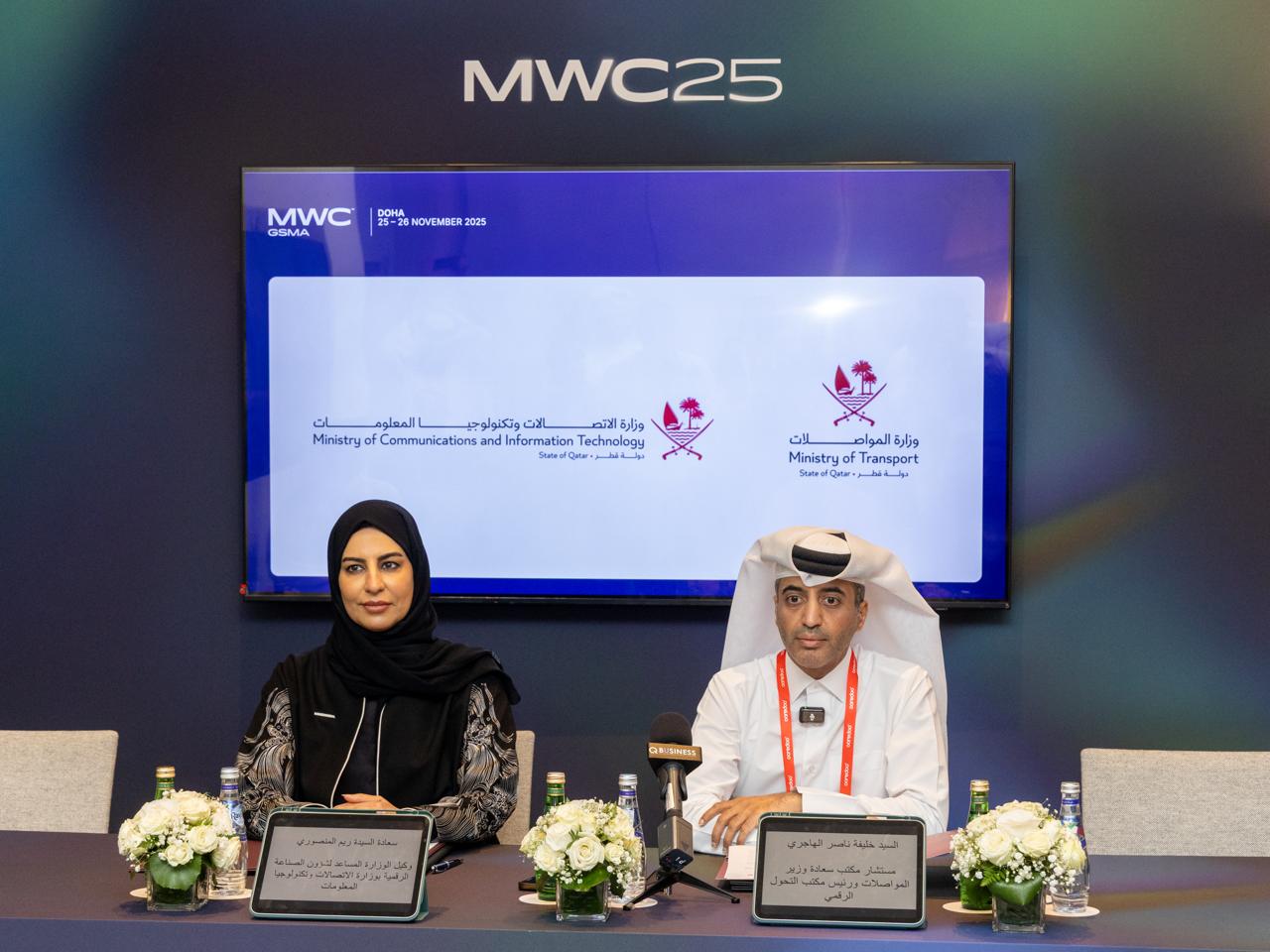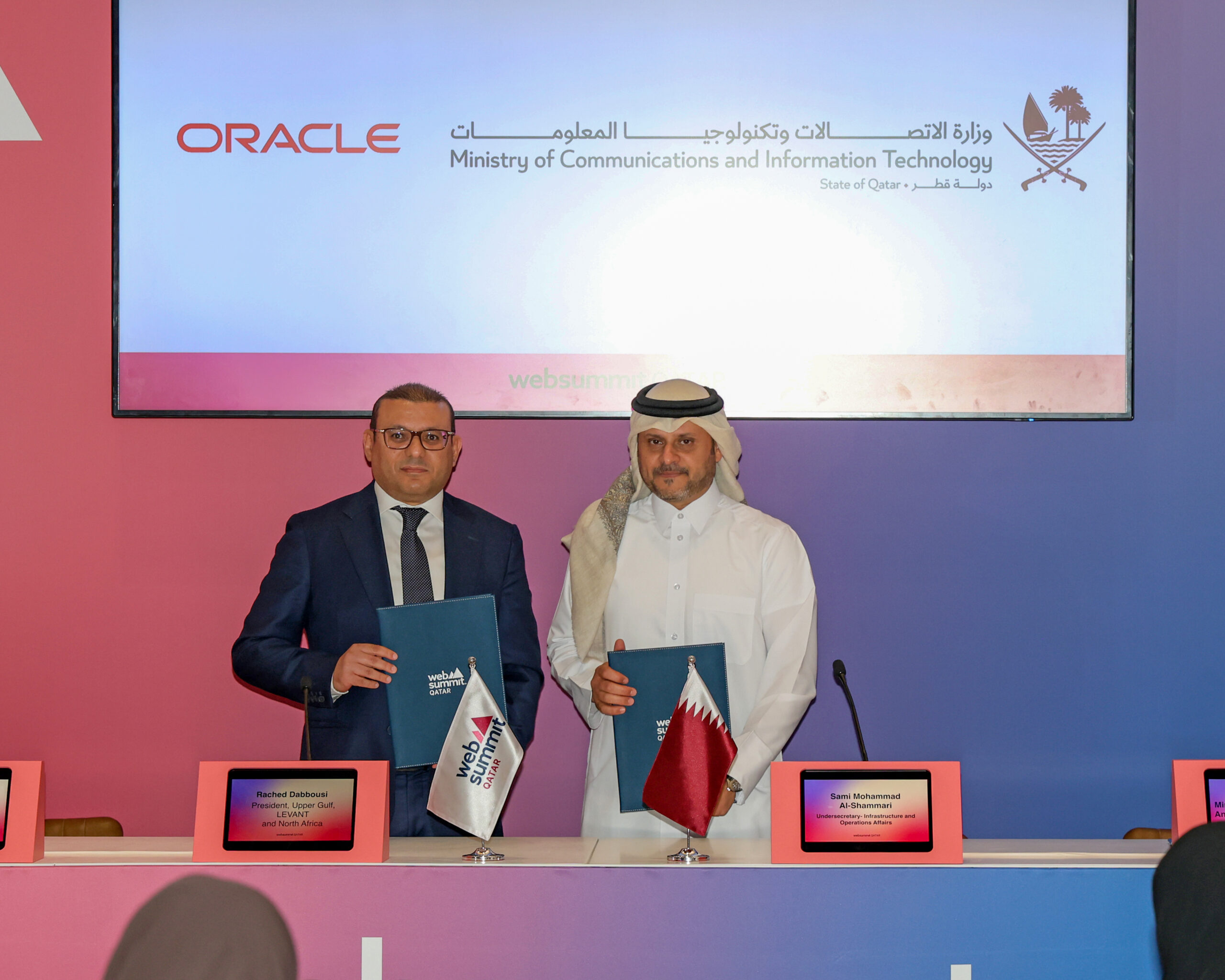- English

MCIT and Ministry of Transport Launch Transport and Logistics Digital Transformation Roadmap
- The Transport and Logistics Digital Transformation Roadmap was launched during a joint press conference held as part of MWC25 Doha.
- Establishment of the Transport and Logistics Digital Transformation Office as a unified institutional framework to accelerate digital transformation across the transport sector.
- Identification of 39 strategic digital initiatives, marking a shift from traditional physical infrastructure to data-driven, AI-enabled smart management.
The Ministry of Communications and Information Technology (MCIT) and the Ministry of Transport (MoT) announced today, during a joint press conference held at MWC25 Doha, the launch of the Transport and Logistics Digital Transformation Roadmap. The roadmap forms part of a national effort to accelerate digital transformation across priority economic sectors and position Qatar as an integrated, smart, and globally connected logistics hub.
The press conference was attended by H.E. Reem Al Mansoori, Assistant Undersecretary for Digital Industry Affairs at MCIT, and Mr. Khalifa Al Hajri, Advisor to the Minister of Transport, who outlined the roadmap’s key components, its strategic direction, and its projected impact on operational efficiency and national competitiveness.
In her opening remarks, H.E. Reem Al Mansoori stated: “Our objective is to open new horizons for a thriving digital economy in Qatar. Through the Transport & Logistics Digital Transformation Roadmap comprising 39 strategic initiatives we are redesigning the national transport ecosystem by enabling data-powered supply chains, advanced analytics, and a fully integrated digital environment that will contribute more than 278 million QAR to the non-hydrocarbon ICT GDP.”
Her Excellency added that the roadmap is aligned with the Digital Agenda 2030 strategic pillars, noting that the Transport and Logistics Digital Transformation Office serves as an integrated platform that harmonizes efforts across entities and drives innovation, resilience, and future readiness within the sector.
From the Ministry of Transport, Mr. Khalifa Al Hajri emphasized the importance of transitioning from traditional infrastructure to smart systems management, saying: “To maintain Qatar’s competitiveness, we must build a transport ecosystem that is integrated, adaptive, and globally responsive. This roadmap enables us to move from physical infrastructure to smart, data-driven management, reducing transit times, increasing throughput capacity, and ensuring a seamless experience for our global trade partners.”
Mr. Al Hajri highlighted that the roadmap is structured around three core pillars: Efficient Infrastructure, Integrated Services, and Global Connectivity. He pointed to the upcoming Digital Logistics Portal as one of the roadmap’s flagship projects, noting that it will serve as a national “One-Stop-Shop” platform for all logistics operators, integrating services across all modes and standardizing procedures to streamline operations.
The cooperation between the two ministries also extends to the implementation of several strategic projects, including advanced digital platforms for logistics asset management, operational data analytics systems, and smart services for ports and airports. The partnership further includes initiatives aimed at strengthening public-private integration through unified digital solutions that support movement management, trade facilitation, and end-to-end logistics operations.
The roadmap is one of the key outputs of the Digital Transformation Offices (DTOs) initiative led by MCIT, which aims to build an integrated digital ecosystem across priority sectors including transport and logistics, tourism, infrastructure, and healthcare. DTOs drive innovation, enable private-sector growth, enhance user experience, and place artificial intelligence at the core of every sectoral roadmap transforming service delivery, decision-making, and national digital capabilities.




